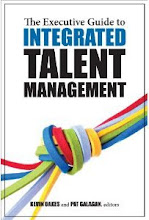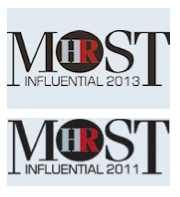For my blog's anniversary, I asked whether there were subjects readers wanted me to post upon. One question was raised by Jo: How will we respond to the productivity challenge created by India and China? (thanks Jo).
Today's marvelous opening ceremony at the Olympics certainly demonstrates China's capability and I think, their productivity very powerfully (I certainly can't see London matching it in 4 years time!). This is also something I've previously posted on and referred to in other fora, for example my Global HR trends and differences presentation on HR.com's VIEW last year.
However, outside major successes such as these, which are relatively few, China clearly suffers from some major competitive problems. China's poor educational system is well known, although improving quickly, and People Management / Mercer also point out shortfalls in Chinese companies' leadership development:
"Experience suggests that not having a well-articulated leadership strategy has led organisations to over-rely on buying leadership talent from the market rather than grooming from within. While many multinationals report that they get significant value and peace of mind from having expatriate talent in China, a more cost-effective and sustainable strategy over the long-term would be to focus on systematically grooming tomorrow’s leaders."
I've also recently finished reading Will Hutton's latest book, The Writing on the Wall: China and the West in the 21st Century, after seeing him present on this recently. Hutton points out major problems in China's economic and political institutions and systems which convinces him that China's current rate of growth is unsustainable.
In light of these problems, China isn't going to be able to reproduce mini-opening ceremonies in every business marketplace, but it's also important to recognise that its problems can be overcome.
So how should 'we' (which I take to refer to HR practitioners, psychologists and the like living and working mainly in western economies) respond to these challenges?
To me, the main thing, which I referred to in the recent Economist debate, is that we continue to develop the skills and other competencies to enable us to continue to pursue a 'high road' path to competitiveness. Strategic HCM anyone?






























I was surprised to see you think the Chinese education system is sub-standard. I taught a lot of Chinese students in New Zealand. They were very well prepared and were graduating at a faster rate than people studying in their first language.
ReplyDeleteAre you referring to the weakness of MN's management structures in China or Chinese management structures in China?
Hi Jo,
ReplyDeleteThere are celarly a couple of excellent academic institutions there and some really highly educated people - I've been really impressed by the HR people from mainland China I've met in my Asian workshops too.
But I think it is recognised (for example, see the McKinsey study I refer to, and Will Hutton says the same thing too), that the number of excellent academic institutions is very, very small. Even allowing for the ones that are currently being built, the general picture isn't that good.
The main problem, certainly as found by McKinsey, is that the Chineses educational system values learning by rote over being able to learn.
See also Talent in China (http://61.172.198.138:8066/) eg Ups & Downs of China’s Labor Shortages: "This year will see 20 million new job seekersin China, among both high school and university graduates. They enter the market at a time when the overall world’s economy is drifting downward and they have gone through a rote learning education system that does not equip them for the workplace. Employers regard professionals with 1-2 years as their starting point, not graduates."
i think China's education were more higher compare to other countries, :)
ReplyDeleteand chinese people were brilliant on their own ways.
Thanks.
2008 Beijing Olympics Medal Tally Count, Updates Results
Medal Tally Count, Updates Results|2008 Beijing Olympics